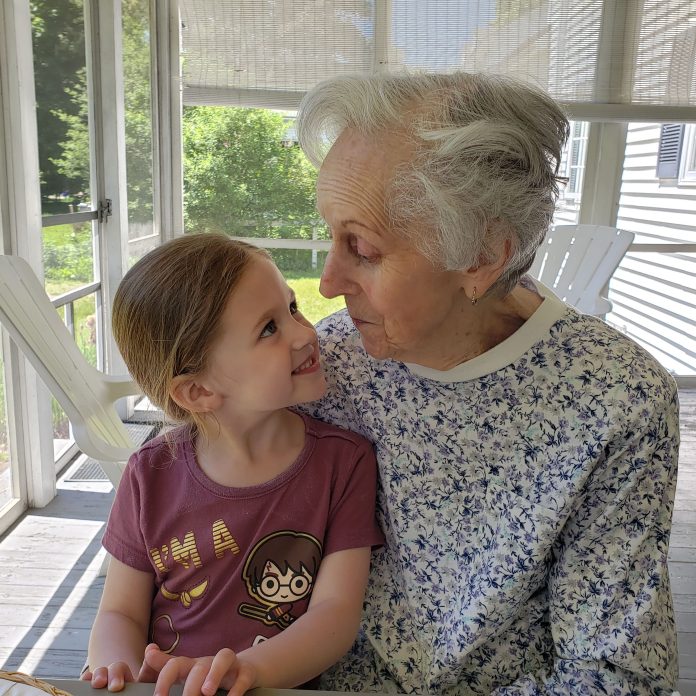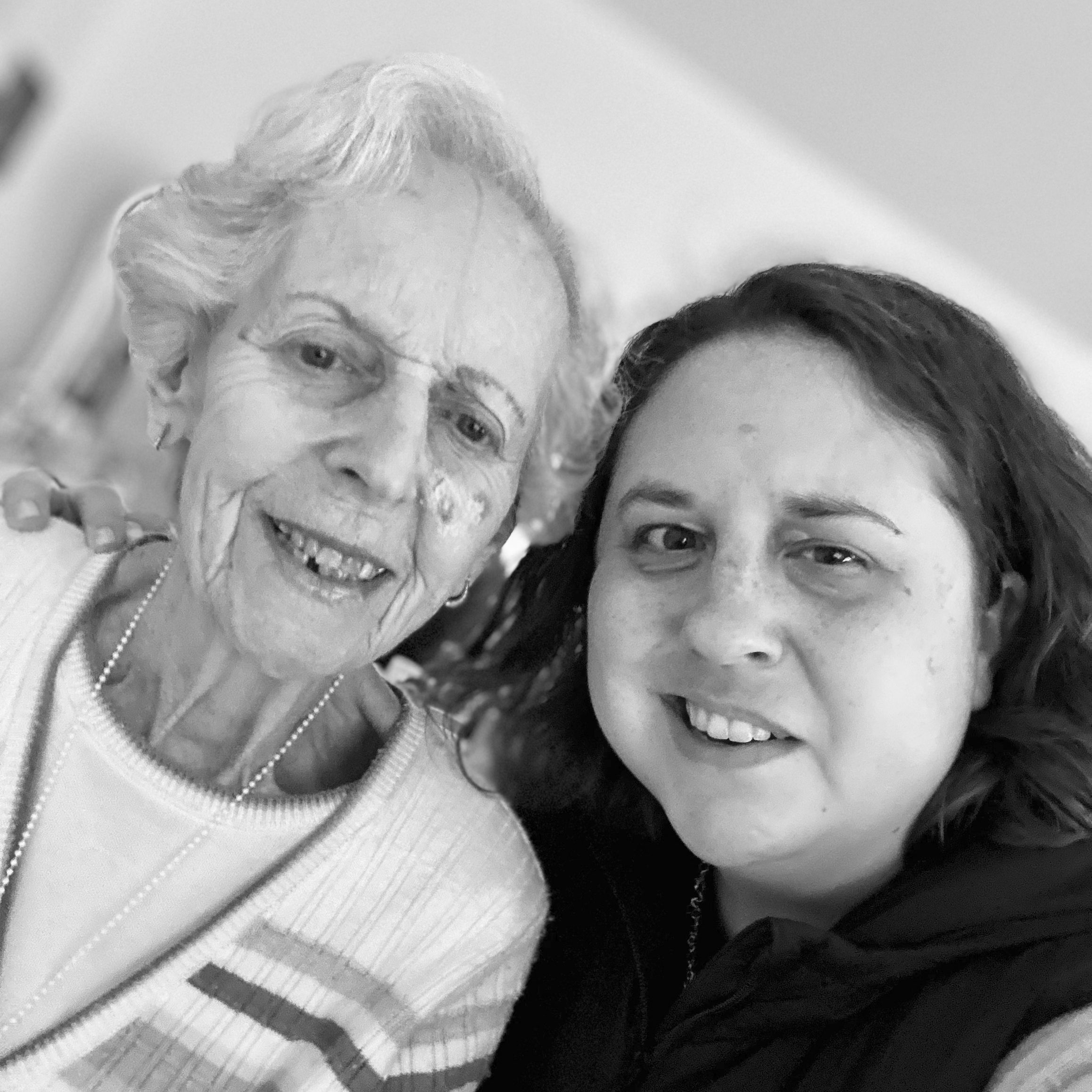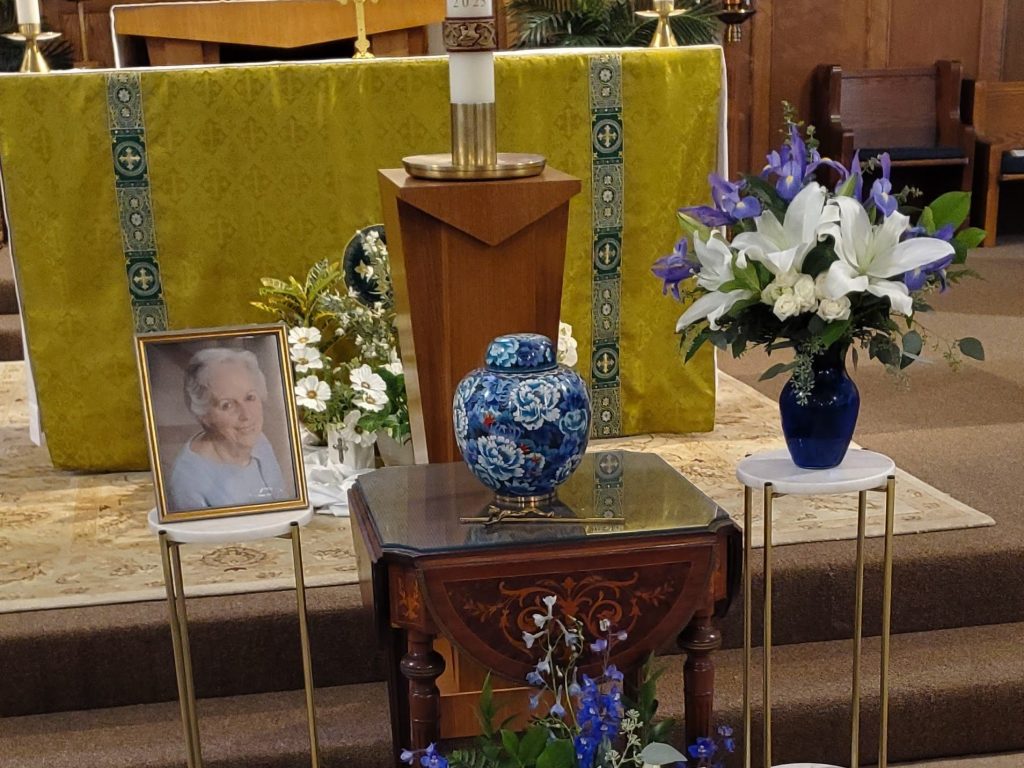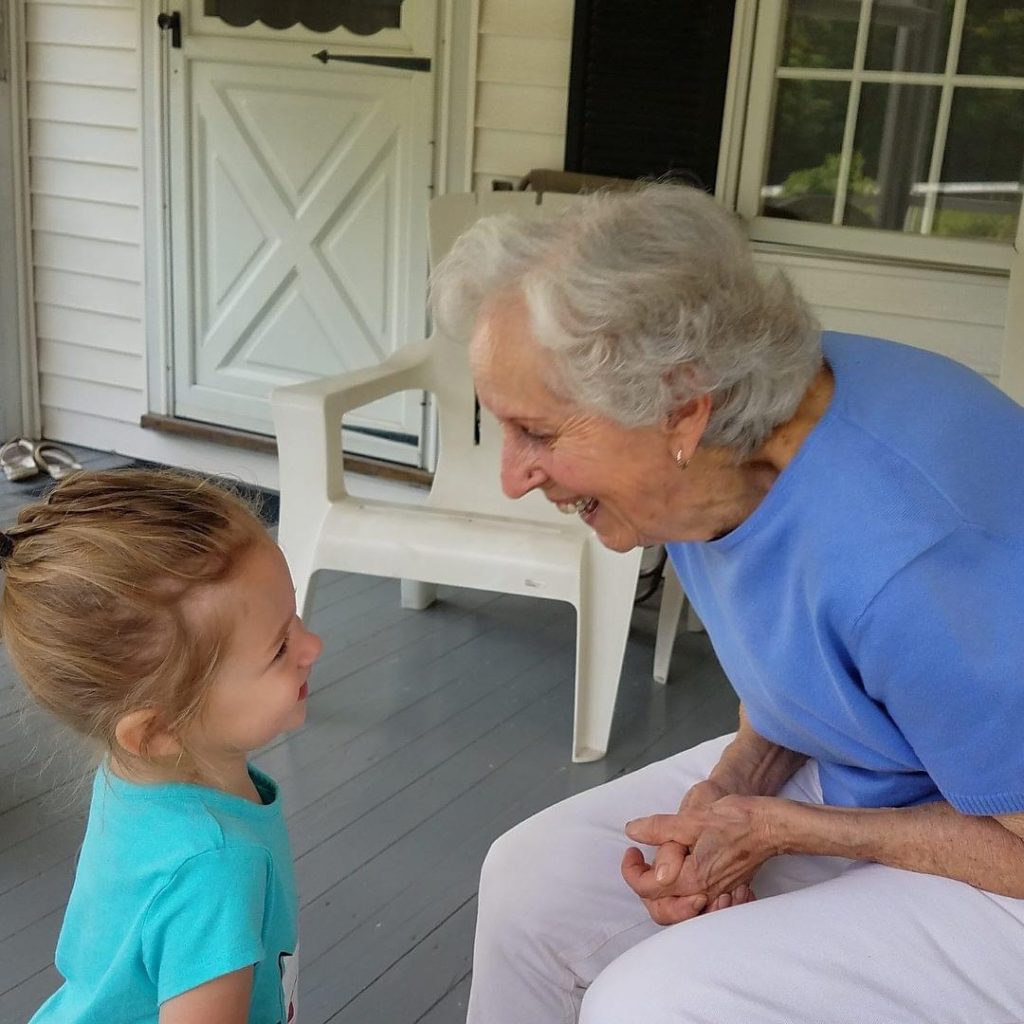Lately, I’ve been learning what so many parents know: grief doesn’t pause when you’re still raising kids. It all overlaps, and it’s messy. I have found parenting through grief to be challenging, and I want to share what has helped.
Losing My Hero and Showing Up for My Kids
My family has been navigating the loss of my grandmother—my Gramma—who was truly my hero. She was one of the kindest, most compassionate people I’ve ever known. She had this incredible way of making everyone she met feel loved, no matter who they were or what they were going through.
At her funeral, I shared a reading about how she always made me feel safe and seen. She told me often how proud she was of me, made me feel like my thoughts and feelings were valid, and never once made me feel small. She’s the reason I try to lead with empathy in my own life and in how I parent my daughters.
The Hardest Part of Parenting Through Grief
Grief alone is heavy. Parenting alone is heavy. Put them together, and some days I feel unable to do either.
I’ve been open with my daughters (ages nine and three) about my sadness. I tell them, “I’m missing Gramma today,” so they see that emotions are okay to feel and share. But I’m careful not to put the full weight of my heartbreak onto them. Death is a concept that adults struggle with, and I don’t want to overwhelm or overburden them. I do want to be authentic, though.
At the same time, I found myself leaning into distraction when I could. I made a slideshow for the funeral, edited episodes of my podcast, and tackled mountains of laundry. Busy hands can help quiet a busy mind, even if only for a little while.
And I’ll be honest: I haven’t been as present as I’d like with my girls as I grieve. But I’ve been reminding myself that this is normal. Parenting through grief isn’t about perfection; it’s about doing the best you can in a moment that feels impossible.
How We Prepared Our Kids for the Funeral
As a family, we decided to bring both of our daughters to my grandmother’s funeral. We wanted them to have the chance to say goodbye, but we also know their limits. So, we came up with a plan: if it became too overwhelming, my husband would take them across the street to a restaurant to decompress.
Since this was a Catholic funeral, which is new for our non-religious family, we prepared the kids for what to expect. We’ve explained that there would be prayers, rituals, and moments of silence. We read The Invisible String by Patrice Karst together as a family, which helped both girls understand that love and connection don’t end when someone dies.
Most importantly, we told them it’s okay to feel whatever they feel. They can cry, fidget, ask questions, or even feel bored or overwhelmed. There’s no “right” way to grieve, and there’s no perfect way for kids to process big, unfamiliar experiences like this.
Parenting Through Grief in a Neurodivergent Household
Our family is neurodivergent, which adds another layer to big emotional events like funerals. Sensory overload is definitely a thing. The noise, the people, and all those feelings can be pretty overwhelming for any kid. But it can be even tougher for kids whose nervous systems are set up a bit differently.
We made space for flexibility. The girls knew they could take breaks, sit in a quieter space, or step outside if it felt like too much. We encouraged them to ask for what they need without guilt or shame, and we allowed ourselves to do the same.
Grief doesn’t follow a neat path for anyone, but for families like ours, leaning into flexibility and communication can make the process gentler for everyone.
Actionable Steps for Families Parenting Through Grief
If you’re facing a similar loss and wondering how to help your kids and yourself through it, here are some steps that have helped us:
- Be Honest (in Age-Appropriate Ways):
Share your emotions without overwhelming your children. Let them know it’s okay to feel sad, confused, or scared. - Prepare Kids for What to Expect at Any Public Events:
Talk through the details of the funeral or memorial service, especially if it involves unfamiliar rituals or traditions. - Make Space for All Feelings:
Remind your children (and yourself) that there’s no single “right” way to grieve. Tears, questions, silence, and even laughter are all valid. - Have a Backup Plan:
Have a backup plan for your kids. Provide an option for them to step away if they feel overwhelmed, such as a quiet room, a quick walk, or a visit to a nearby restaurant. - Lean on Comfort Tools:
Books like The Invisible String by Patrice Karst, Everywhere Still by M.H. Clark, and Cape by Kevin Johnson can help children process big emotions. Quiet activities, familiar routines, or comfort objects can help, too. - Be Gentle With Yourself:
You won’t be the “perfect” parent while grieving, and that’s okay. Some days, just making it through is enough.
Resources for Families
- Comforting book about connection and loss for kids:
- Dougy Center: The National Center for Grieving Children & Families offers free resources and support for kids navigating grief.
- Postpartum Support International: While focused on perinatal mental health, they also offer groups for parents managing stress, loss, and mental health needs.
What I’m Carrying Forward
Parenting through grief will never be easy. It’s messy, imperfect, and often feels like too much to carry. It’s also an opportunity to teach our kids that it’s okay to feel deeply, seek help, and connect during tough times.
My Gramma taught me to lead with love and compassion, even in hard moments. It’s the example I’m holding onto as I try to guide my daughters through this, one day and one feeling at a time.
Pin this post and be sure to follow Vermont Moms on Pinterest!
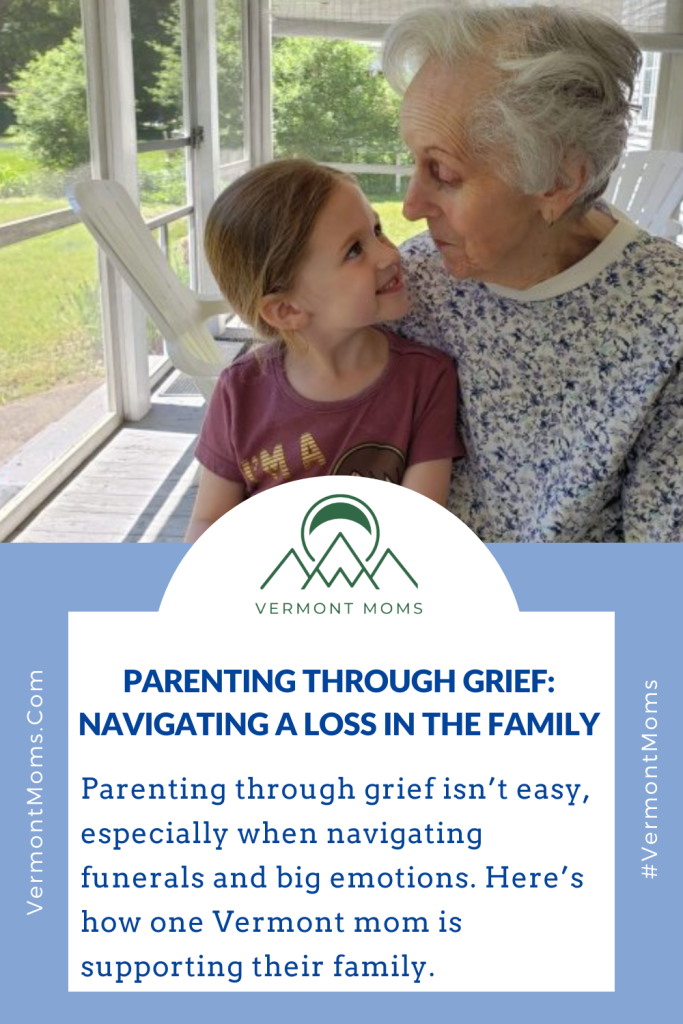
Vermont Moms Insiders get exclusive content that you do not want to miss, so sign up today!

